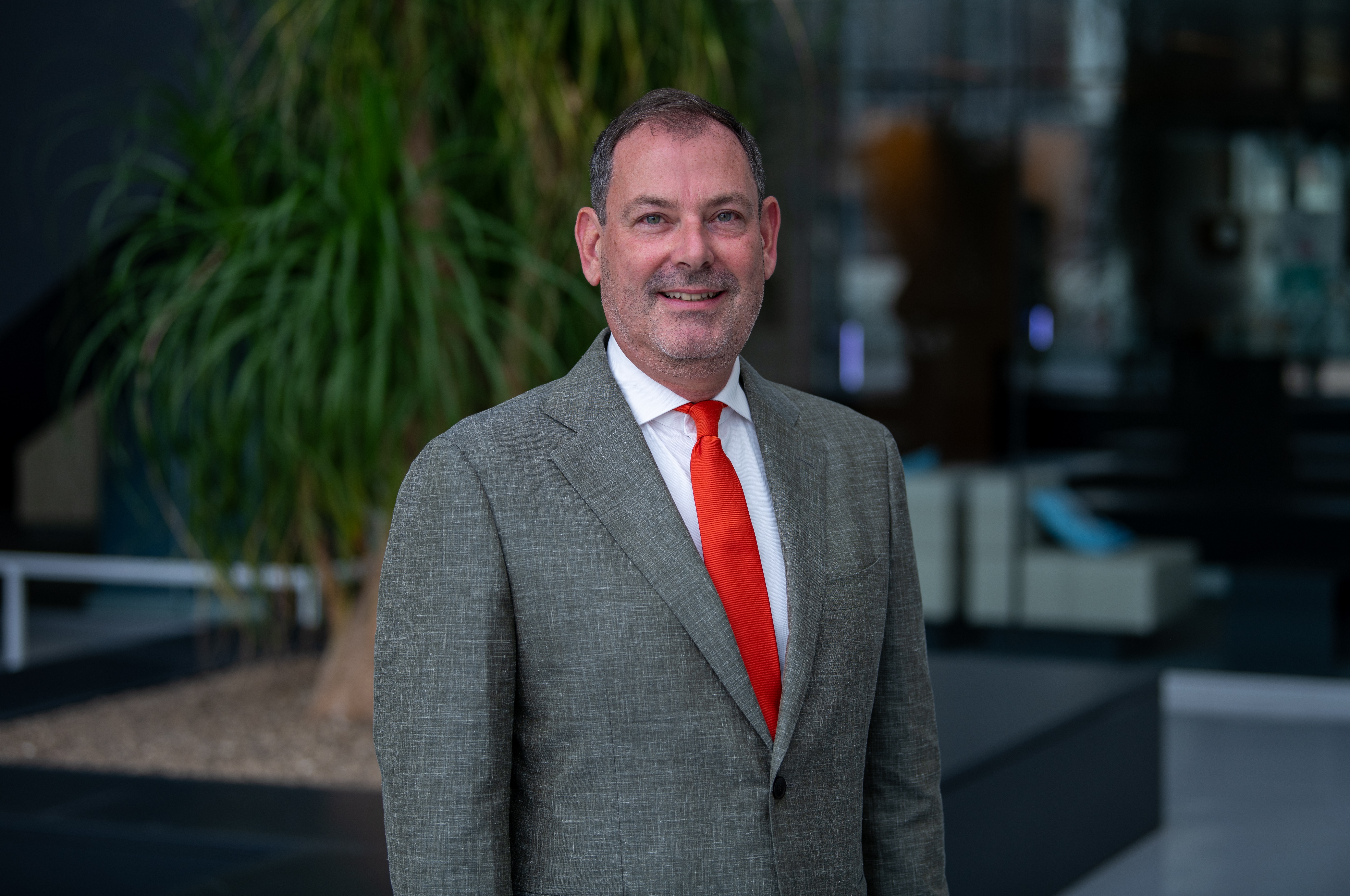The ambassador - Costa Rica-en
The ambassador

Arjen van den Berg
Central America was unfamiliar territory for Arjen
van den Berg when he became the Dutch ambassador to Costa Rica. He
and the embassy team also work in Guatemala, Honduras, and El Salvador.
See the curriculum vitae of ambassador van den Berg on rijksoverheid.nl (in Dutch).
You became the Dutch ambassador to Costa Rica in 2024. What first struck you about the country, the people, or the way of life?
‘Before becoming ambassador here, I lived in Asia for a long time, including in Beijing, Tokyo, and Hong Kong. The past sixteen years of my career at the Dutch Ministry of Foreign Affairs have mainly focused on East Asia and China. I wanted something different, a new continent, a different country. And that was Costa Rica. Incidentally, my knowledge of the global power China is still very useful to me here.
‘When I arrived in San José, it was my first visit to Central America, so it truly felt like a great adventure. But it didn't take long for Costa Rica to become a favorite destination. The team at the embassy gave me a very warm welcome. And that's how it felt for the country as a whole. The people are exceptionally friendly, the scenery is fantastic, and life therefore is very pleasant. It's like a warm bath, as we say in the Netherlands.’
What do you see as your most important task as ambassador?
''It might be stating the obvious, but with everything going on in the world, I especially hope to strengthen the relationship between Costa Rica, Central America, and the Netherlands. We have a lot in common, which we can build on. Moreover, we have a fantastic team here at the Dutch embassy, and I hope I can motivate them to achieve even better results.'
What are the main topics the embassy is working on? Can you give some examples of projects that appeal to you?
‘We have a considerable number of projects in the areas of human
rights, rule of law, and democracy. Every year, the Dutch embassy
awards a human rights tulip to a group or individual in the region who
has championed human rights. Last year, I went to Guatemala, deep in
the jungle, to present the award to the Consejo Indígena Maya Ch'orti'
de Olopa Chiquimula, an organization that peacefully fought for their
indigenous rights against economic exploitation and political
exclusion. A special experience.
The Netherlands is also committed to improving the acceptance and
rights of LGBTQI+ people. That's why we brought the Amsterdam Rainbow
Dress, a work of art made from the flags of countries where
homosexuality is criminalized, to San José last year. This beautifully
demonstrates what the Netherlands stands for. The rights of LGBTQI+
people are under pressure in Central America, including Costa Rica.
The Netherlands consistently advocates for the respect of these human rights.
Costa Rica and the Netherlands also collaborate in the fight
against transnational organized crime and drug trafficking to Europe.
For example, we now have several drug detection dogs trained in the
Netherlands that are very successful in detecting drugs. The police,
customs, and judicial authorities in Costa Rica and the Netherlands
work closely together to combat drug smuggling. In this context, we
recently launched a pilot program with so-called smart and secure
trade lanes, which allow you to track the movements of and around
containers from start to finish.’
How do you relax after a day's work?
‘It's truly wonderful that even in the heart of a city like San José, you can feel and see how close nature is. I love nature and enjoy long walks, including with our dog. I'm also a big fan of political drama series, such as Slow Horses and The Diplomat.’
What was the highlight of your first year as ambassador
What are you proud of what the embassy has done or achieved in recent years?
''I'm proud that we, as a relatively small team, are so visible. Sometimes I hear from other embassies that the Dutch team is truly everywhere, at all kinds of events and meetings. That's obviously important for diplomatic work.
Another thing that I’m proud of is the fact that we have a number of colleagues at the embassy who volunteer their time to promote diversity and inclusion in the workplace and a safe working environment. I believe it's important that everyone, regardless of gender or orientation, can be themselves. The Netherlands stands for diversity and inclusion, and so it's also a key aspiration for us as an embassy.'




